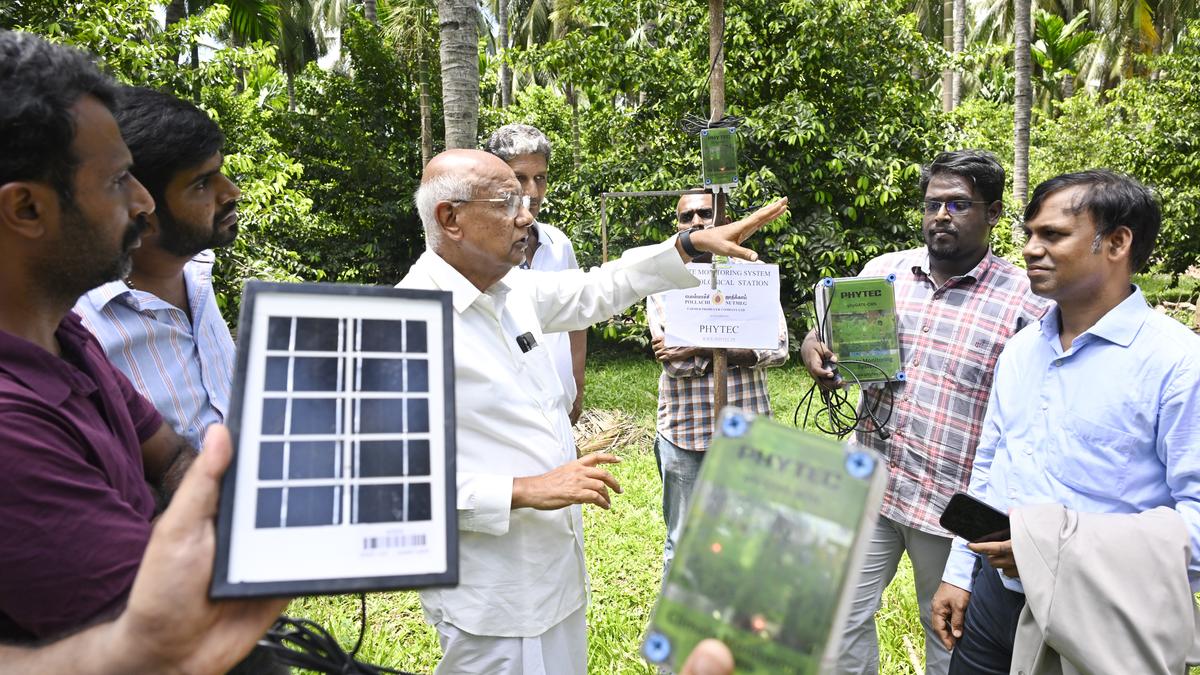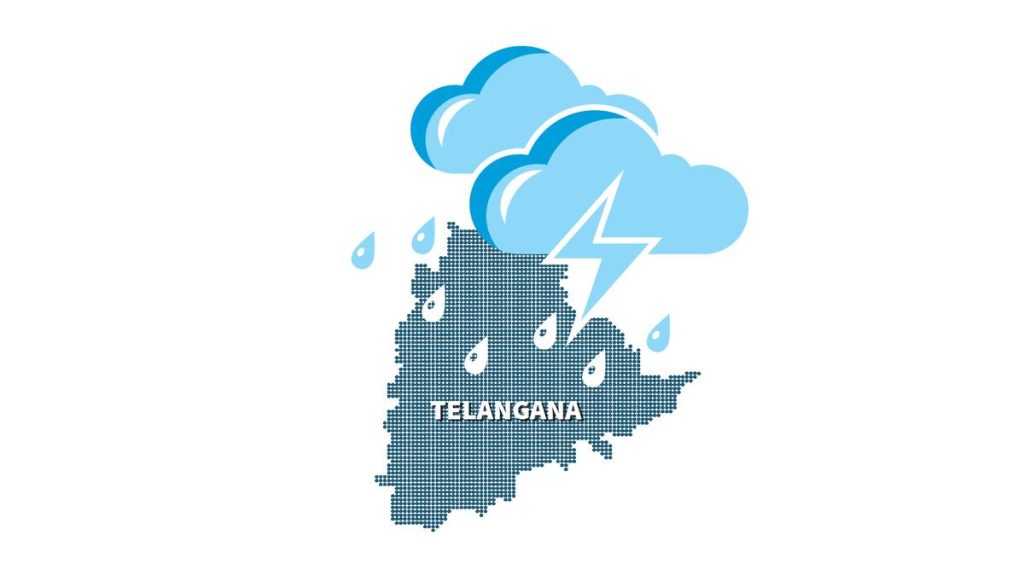Now Reading: Pollachi Farmers Use Climate Sensors to Explore Crop Alternatives
-
01
Pollachi Farmers Use Climate Sensors to Explore Crop Alternatives
Pollachi Farmers Use Climate Sensors to Explore Crop Alternatives

Quick Summary
- Location and Issue: Coconut farmers in Tamil Nadu’s Pollachi region, Coimbatore district, are combating the widespread Root wilt Disease affecting coconut crops.
- Disease Impact: Out of 75 lakh coconut trees, 10 lakh are affected by the disease, with 3.5 lakh severely impacted and nearly 1 lakh trees removed. The disease lacks a cure and spreads through vectors like leafhoppers and whiteflies.
- Initiative: Farmers have installed real-time climate monitoring systems to record weather data (temperature, humidity, rainfall, solar radiation) to assess alternatives to coconut cultivation if it becomes unviable due to worsening conditions.
- Technology Used: The system is developed by Bengaluru-based Phytec using low-cost solar-powered sensors placed at one-kilometre intervals that transmit data independently of mobile networks for micro-climate analysis. Data is uploaded to cloud servers for further research by TNAU (Tamil Nadu Agricultural University).
- Crop Diversification Plan: Farmers aim to promote choice crops like fruits and spices for livelihood stability while reducing dependency on coconuts amid climatic challenges.
- Stakeholder Actions: Measures such as removal of infected trees continue alongside diversification efforts supported by TNAU’s field trials involving chemical treatments, wilt-resistant varieties, fruit/spice crop suitability studies.
Indian Opinion Analysis
This initiative highlights the increasing urgency among farmers in tamil Nadu to embrace technology-driven agriculture amidst environmental challenges threatening major cash crops like coconuts. While Root wilt Disease has long been present in South India, its accelerated spread underscores the vulnerability of agriculture sectors reliant on monoculture farming practices under shifting climatic conditions.
The proactive adoption of sensor-based climate monitoring shows how grassroots innovation can pave the way toward solutions without immediate government intervention while leveraging scientific institutions for actionable insights-like TNAU’s support with alternative cropping strategies or experimental formulations.
Pollachi’s effort also underlines growing awareness about crop diversification as an economic safeguard against climate-induced risks-a viable path forward not only locally but possibly across other high-risk agricultural zones nationwide dealing with similar threats from pests or diseases amplified by global warming trends.
Read more at [source link].






















